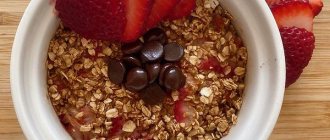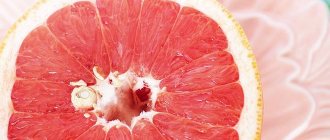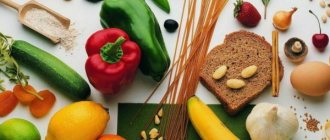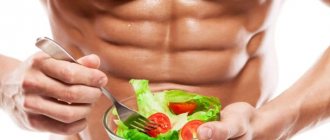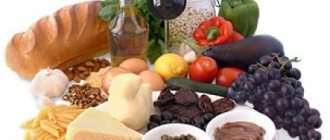Why is it important to eat right after surgery?
The success of joint replacement largely depends on the state of the immune system. She will have to protect the body from bacteria that can infect the postoperative wound. Therefore, it is very important to support immunity for 1-2 weeks before and immediately after surgery.
The immune system suffers from free radicals, so it is important to improve the intake of antioxidants into the body. Good antioxidants are vitamins A, E and C, zinc and selenium, as well as fresh vegetables and fruits (tomatoes, cranberries, broccoli, nuts and citrus fruits). All of them provide good immune support.
Broccoli and tomatoes are good immune support
Healthy and Unhealthy Eating Habits: What's the Difference?
“What we promote to clients is a whole foods diet, meaning eat foods as close to their original form as possible,” say many nutritionists. When food is processed or refined, it is stripped of much of its fiber, vitamins and minerals, and often preservatives are added instead, they explain.
A plant-based eating model is the way to go. Research shows that people who consume a more plant-based diet have a lower risk of all chronic diseases.
Case in point: A study published in August 2021 in the Journal of the American Heart Association found that people who followed plant-based eating patterns had a 16 percent lower risk of developing heart disease.
This is possible because these diets tend to be higher in heart-healthy fiber and nutrients like potassium, while limiting intake of saturated fat and cholesterol.
The definition of plant-based eating can vary, but can include vegan (no animal products), raw vegan (no animal products and only raw foods), vegetarian (no meat), or even flexitarian (eating vegetarian most of the time).
Also key: cultivating a happy relationship with food. Food is not our enemy. Instead of focusing on what you shouldn't eat, think about what you can add to your plate that will improve your health, such as nuts for hearty monounsaturated fatty acids or raspberries for their fiber and antioxidants.
Foods you should not eat before endoprosthetics
Some foods enhance the inflammatory response, so it is recommended to exclude them from the diet at the preparatory stage as early as possible. These include:
- products containing refined sugar (sweets);
- fatty meats and other products containing saturated fatty acids;
- ready-made cookies and cakes (they contain dangerous trans fatty acids);
- alcohol.
If you want the artificial joint to take root, do not eat cakes and pastries.
The need for proper nutrition: basic principles
In order for food to bring benefits, and not just pleasure, you should adhere to several very important principles, which will be discussed below.
Nutritional balance
The daily menu should be as consistent as possible in the content of proteins, carbohydrates, fats, vitamins and microelements. To maintain normal weight and health, an adult needs to maintain the following ratio in food (or as it is also called BJU):
- carbohydrates – 45-65%;
- proteins – 10-35%;
- fats – 20-35%.
It is this ratio of BJU that allows the body not to feel a deficiency of any substances. Equally important is the consumption of the required amount of vitamins and microelements.
Interesting fact
In 1495, more than 100 of the 160 crew members died on Vasco da Gama's ship heading to India. And this happened precisely because of the incorrect nutrition of the sailors. The reason is that their menu was terribly lacking in foods rich in vitamin C. People died from an acute deficiency of vitamin C, a disease called “scurvy.” Historians claim that from 1600 to 1800 more than 1 million (!) sailors died from scurvy. Of course, after doctors found out what exactly people were dying from on ships during long voyages, they began to add citrus fruits and other foods rich in ascorbic acid to their menu.
Minimum heat treatment of products
When processed at elevated temperatures, most of the beneficial substances may evaporate from products. This is why experts recommend cooking food using a grill or steamer. Read an article from our nutritionist about the best way to prepare food for health benefits.
It is necessary to limit harmful foods as much as possible
You need to try to limit as much as possible, or better yet, exclude from your menu various artificial sweets (cookies, candies and sugary drinks), snacks (crackers, chips, etc.), smoked foods, dry lunches, industrial canned food and other unnatural products.
Compliance with food
The average person needs about 2000 kcal per day to feel normal. However, this indicator may vary from person to person. In order to calculate calorie intake, there are many formulas that take into account age, weight and height, as well as the frequency of exercise. To maintain your normal weight, you should not overeat, since a weight gain of just a couple of kilograms per year in 20 years can become 40-50 kg. Think about it!
Compliance with diet
You should eat often, but little by little. So, a healthy person should eat about 4-5 times during the day, and portions should weigh no more than 200 g. The morning meal should be approximately 1/3 of the entire menu, lunch should be a little more than 1/3, and dinner should be less than 1/3. 3. It is also advisable to maintain the same daily eating schedule every day. We discussed how to create a healthy nutrition menu in our other article.
How to improve and change your eating habits
If your goal is to eat healthier, it can be overwhelming to think that you have to change your eating habits all at once. Here are six tips on how to start your healthy eating habit.
Make a plan for your new healthy diet
The first step is to develop a concrete and specific plan of action. For example, tomorrow morning when it's time for breakfast, plan to skip the fast food breakfast sandwich and eat a piece of whole grain toast with peanut butter at home.
2. Eating healthy is a healthy habit: Save money on your lunch
Bringing lunch to school or work has more than one benefit. This is a good way to save money and use up what you have in the house, and it will likely be more nutritious. One easy way to do this is to pack up leftovers from last night's dinner.
Keep unhealthy foods out of sight
Clear your pantry and refrigerator of any junk food and start thinking about getting only healthy foods in your kitchen. This way, you'll be more likely to eat healthy and much less likely to eat junk.
Make a shopping list so you can buy all the vegetables, fruits and other plant foods you need over the next three days.
Healthy Eating, Healthy Habit: Take Baby Steps
Set yourself small, achievable goals. For example, this week you will eat three more servings of vegetables. How can you make this happen? Maybe it's by adding one extra serving of vegetables to dinner just three nights this week.
Or, you're going to make one bean-based meal like chili for lunch just one day this week.
Logging to Monitor Food Choices
A food diary is one way to eat healthy. This isn't about tracking calories or carbs—instead, writing down your eating habits will help you better understand what you've been eating.
Reaching this root cause is a critical step towards behavior change. For example, you came home after work and snacked on chips and salsa while preparing dinner.
Revisiting your food diary may help you realize that it was because you skipped breakfast and ate a small, rushed lunch—you were really hungry when you got home and couldn't wait!
Healthy eating is a healthy habit: Creating a healthy lifestyle in children
If you're confused by the fact that Junior said he hates broccoli after enjoying it last week, or that he finds anything other than chicken nuggets or boxed mac 'n' cheese, you'll be glad to know that you don't have to force healthy eating habits on your child.
Healthy lifestyle
Category: Healthy eating.
Healthy eating... we hear this phrase so often. What do we need to do to eat right and why do we need it?
Satisfying hunger is one of the most important instincts of the body, necessary for maintaining life. Firstly, all the cells and tissues of our body are formed from the food we eat. Secondly, food is a source of energy necessary for the functioning of the body.
Consequently, our health depends on what we eat, in what quantity, when and how.
What is proper and healthy nutrition?
Proper nutrition presupposes that many nutrients - proteins, carbohydrates, fats, water, minerals and vitamins - should be supplied to the body regularly, in the required quantities and in optimal proportions. A deficiency or excess of certain nutrients causes first temporary inconvenience and then the risk of developing various diseases.
Healthy nutrition makes it possible to stabilize weight without forced restrictions, helps get rid of diseases and prevent their development, and helps restore intellectual and physical energy. Healthy eating is an important part of a healthy lifestyle.
To eat right, you need not only desire, but also knowledge.
The ABCs of healthy eating or 20 facts about what and how to eat
1. Food is needed for life. Any food is not just a pleasure or a ritual. Any food eaten supplies the body with energy and substances to maintain health.
2. Eat well. The ratio of proteins, fats and carbohydrates per day should be approximately 1:1:4. You can remember the correct proportions using a simple technique: imagine a plate divided into three equal parts. Two of them are occupied by carbohydrates, and the third is equally divided by proteins and fats.
3. Diversify your diet. The same foods on the table are boring and can lead to a lack of important nutritional components.
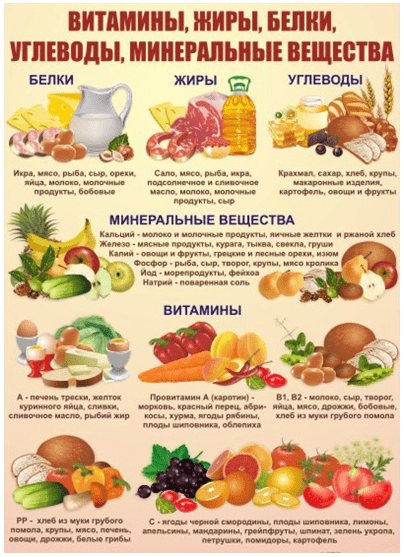
You can get the necessary set of vitamins, microelements and minerals only from a long list of products, most of which are quite affordable: vegetables, fruits, meat, fish, nuts, dairy products, legumes, bread, durum wheat pasta, berries and herbs.
4. Eat more often. Paradoxically, in order not to gain weight, you need to eat more often. Have a hearty breakfast, a normal lunch and a modest dinner, in between, have a fruit snack, and before bed, a fermented milk drink. This way you will not feel hungry and will be able to control the quality and quantity of food you eat.
5. Carbohydrates are vital. This is the main source of energy, since the body uses glucose for its needs.
Carbohydrates are easily digested and quickly enter the bloodstream. With a lack of carbohydrates, the body begins to draw energy from the proteins contained in the muscles, thereby depriving the body of building material for vital hormones and antibodies.
6. Carbohydrates are simple and slow. In the understanding of the average person, carbohydrate food is something sweet. But foods containing too much sugar are a way of providing the body with energy, which ultimately lasts very little, and the feeling of hunger quickly arises. Therefore, it is better to eat complex or, as they are also called, slow carbohydrates that will be absorbed gradually: vegetables, fruits, whole grain products, pasta from durum wheat and cereals.
7. Less sugar. Excess sugar in the diet is another cause of excess weight. Read labels carefully.
Added sugar goes by other names: sucrose, maltose, corn syrup, molasses, cane sugar, corn sugar, raw sugar, honey, fruit concentrate.
Avoid refined sugar and sweet drinks. One glass of sweet soda contains up to 8 teaspoons and 130 kcal.
Control the sugar content in “healthy” foods. Muesli, cereal, breakfast cereals and low-fat yogurt with fruit contain sugar. It is also added to products for children.
8. Eat more whole grains. They contain complex carbohydrates that are digested slowly and reduce cravings for sweets.
Include unpolished grains, bran bread, and wholemeal bread in your diet. They all contain a lot of fiber and therefore help reduce hunger and protect the body from cardiovascular diseases. Whole grain products contain fewer calories, but contain vitamins B, E, calcium, potassium, zinc, copper and other beneficial substances.
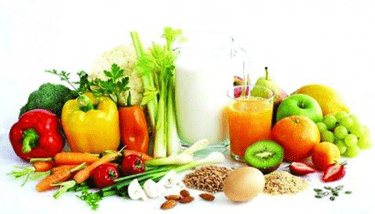
9. Proteins should always be present. Cells of the body, in particular muscle tissue, are formed from proteins. Hormones and antibodies are also proteins. If there is not enough protein in food, immunity decreases, hormonal balance and restoration of body tissues are disrupted.
10. Fats cannot be completely eliminated. The sheaths of nerve fibers are made up of fats, they are part of the structure of the cell wall, and are also necessary for cell division and the synthesis of important hormones. Lack of fat leads to a deficiency of the vitamins it contains and disruption of the nervous and hormonal systems.
Please note that among the fats consumed, animals should make up only a quarter, the rest should be vegetable.
11. Fats should be limited. Excess fat is not only stored by the body in reserve and forms excess weight, but also disrupts the functioning of the liver and pancreas.
Fat can be found even in foods that appear to be low-fat. For example, “Doctor’s” sausage may contain about 30 percent fat. There is fat in chocolate and cookies, the latter containing an average of 20 percent fat. Animal and vegetable fats have the same calorie content.
12. Reducing fat in your diet is quite simple. Low-fat dairy products taste no worse than whole dairy products, and with their help the caloric content of the diet can be reduced by almost half.
Choose lean meats and poultry without skin. Bake the meat on a wire rack or a special frying pan with grooves to drain fat. Avoid full-fat sour cream, mayonnaise and heavy cream. Choose foods with a low percentage of fat, replace fried foods with boiled or baked ones, and use non-stick cookware to reduce the amount of oil when cooking.
Remember that vegetable oils also contain fat, and limit yourself to a teaspoon of oil per person when dressing your salad.
13. At least 600 g of fruits and vegetables per day. Vegetables, fruits and berries contain vitamins that are not found in other foods. In addition to ascorbic acid - vitamin C - they contain carotenoids, folic acid and flavonoids, collectively called vitamin P.
It is better to eat vegetables and fruits raw or gently thermally processed - this way they retain more vitamins and nutrients. Regularly consume green and orange vegetables - they contain flavonoids - natural antioxidants that protect the body from aging.
14. Consume fish at least once a week. Fatty fish - mackerel, herring or salmon - contain a lot of essential Omega-3 fatty acids, which fight heart and vascular diseases. For a positive effect, it is better to eat at least three fish dishes per week.
15. Include dairy products in your diet. The daily requirement of calcium can be obtained from half a liter of milk, and vitamin B2 from a glass. Fermented milk products are also suitable for those who cannot tolerate regular milk. They are as healthy as milk, they are easily digested and help maintain intestinal microflora.
Eat milk porridge. Milk and cereals complement each other well in composition and are easily digested together without creating additional stress on the digestive tract.
16. Teach children proper nutrition. Causes of excess weight in adults usually lie in the way they ate as children. Children are not capable of self-restraint, so sugar especially needs to be limited. Teach yourself and your children to eat fruit instead of baked goods and sweets, and reduce the consumption of sugary drinks.
17. Excess weight: excess nutrition or lack of exercise. Weight increases when the body receives more energy from food than it needs. If the body receives more energy than it can expend, this leads to weight gain.
In Russia, the cause of excess weight is most often an excess of animal fats in the diet. Such products include, for example, sausages, butter, hard cheeses, as well as fatty meats - pork and lamb.
18. Checking your weight is easy. You can find out if you are overweight by calculating your body mass index (BMI) using a special formula. BMI = body weight in kilograms/(height in meters x height in meters). Or simply enter your data into the calculator on the Takzdorovo.ru website. If you get a value from 18.5 to 25, then you are not overweight.
19. The number of calories depends on your lifestyle. The amount of energy your body needs depends on how active you are. If you sit in the office all day, you spend about 1600 kcal - this is very low activity. With daily fitness classes, up to 2500 kcal are spent per day - this is an average load.
Heavy physical labor takes 4000 or more kcal per day. Therefore, the caloric content of the diet must be selected by first determining how much energy you spend.
20. Eating healthy is easy and inexpensive. The healthiest cereals are the cheapest. In winter, it is better to buy frozen vegetables instead of expensive fresh ones, low-fat dairy products are cheaper than whole ones, and vegetable oils are cheaper than butter. And cooking at home is more profitable than regularly buying semi-finished products. Changing your eating habits will have a beneficial effect on your health, appearance and well-being.
It is also important to know:
- which foods are healthy, which are harmful and why;
- which cooking technologies should be used and which should not be used, after using which of them more essential nutrients will remain;
- what food additives are in the finished products you buy;
- What is diet and why is it important?
Proper nutrition must be selected taking into account a person’s age, body composition, existing and other factors.
Take a step towards your health and the health of your loved ones.
Hotline for healthy eating: 8-800-200-0-200 (free call from any region of the Russian Federation).
What are some healthy foods to eat every day?
There are so many healthy foods to eat, and you can choose the ones you like without worrying about the latest “superfoods.” Remember: There are no bad fruits, vegetables, nuts, seeds, legumes or whole grains. They are all good, and there is not one that is magical. Here are a few undeniably healthy foods to include in your meals and snacks:
- Fruits: berries, bananas, citrus fruits, mangoes, kiwis, apples, melons.
- Vegetables: Leafy greens such as kale, arugula and collard greens; pepper; carrot; sweet potato; mushrooms; zucchini.
- Legumes Beans, lentils, dried peas, hummus.
- Whole grain brown rice, wild rice, whole grain bread, quinoa, amaranth, millet, bulgur.
- Nuts and seeds almonds, pistachios, cashews, walnuts, chia seeds, flax seeds, hemp, sunflower, pumpkin seeds.
